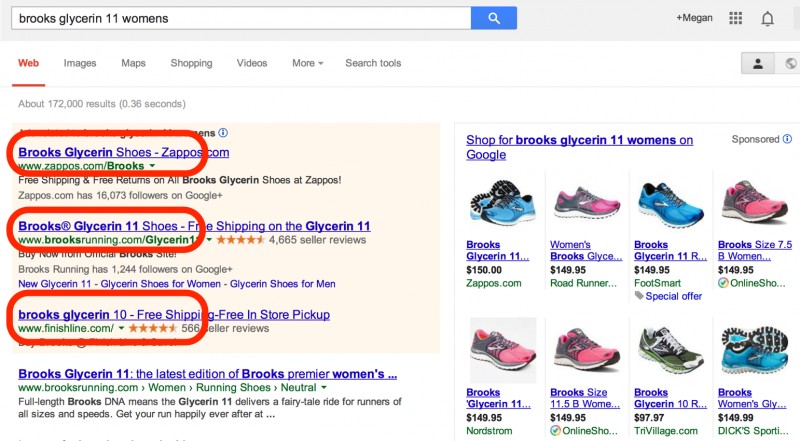Many companies utilize a network of resellers and/or affiliates to help them generate more customers. These resellers are usually paid some kind of bounty on an agreed upon action (sale, install, appointment).
This is true in telecommunications, medical, home products, education, and many other categories you can think of. The key here is to know who is selling, how they are doing it, and to be able to control it as best you can. If you are the brand, you get to set the rules. If others want to sell your wares, they need to play by those rules, or lose the privilege. Here's how to manage your pay-per-click rules & keyword strategy to protect your brand:
Who gets position 1 in branded search?
One thing is for sure, your affiliates shouldn’t be bidding for placement above yours in branded search. You are the brand, so you get to be in first place. Depending on what article you read, paid search gets as much as 41% of the desktop clicks on the search page. The lion’s share of those clicks go to the top paid position. Clearly that’s where you need your ad to be. And as the brand, you pay less for your clicks than anyone else does to be in the top position (a little more on that below).
RELATED CLASS: Who's Got the Time? How to Save Time & Better Prioritize Your PPC Efforts
In the example below, Brooks Running Shoes is below Zappos in the paid listings for the branded query, "Brooks Glycerin 11 Womens".
Who gets positions 2 and 3?
Is it okay to let resellers bid on your branded terms for positions 2 and 3? It is okay, and you should allow it. Why? One primary reason is it can help you manage your competitors by keeping them out of those spots. You probably don’t need to allow more than two resellers to bid on your brand, since there are only three paid positions in total, and you already are taking one. If your resellers can earn money from you by taking one of those positions, they’ll spend more to get there. And if they are spending more, your competition may decide not to bid for those branded terms (NOTE: Companies often bid on competitive branded terms so that if a potential customer is searching on another brand, their name will still turn up as well). If you aren’t in the top three positions, your competitors are getting clicks and sales that should be yours.
RELATED CLASS: Google Shopping Overview: Strategies and Tactics for Success
But I haven't controlled this in the past!
What if your current PPC landscape is a free-for-all? My advice is that you take everyone out of the market except for your top two sellers. You can’t physically prevent someone from bidding on your branded terms. However, if you are paying resellers, you can create your agreements to say that if they want to earn bounties, they cannot bid on your branded terms. And if they are already doing so, simply contact them and tell them to stop.
If I don’t have affiliates, do I still need to bid on branded terms?
Yes and here’s why, even if you are already number one in organic:
1. You will pick up more clicks if you are in position one in paid and position one in organic.
It’s a fact that has been proven over and over again. If you are unsure, try testing it. If your clicks (and conversions) don’t improve, then stop the campaign.
2. Branded terms are affordable—if you're the brand!
Branded terms are really inexpensive when you’re the brand because your quality score on branded terms will be higher than anyone else’s. That means that you’ll pay far less per click then the next guy pays for your branded terms (this is significant, say $.40 per click if you’re the brand, to $4 per click if you’re not).
3. You’ll be able to manage your competition better (see above).
If you aren’t bidding on your branded terms, there’s nothing to stop the competition from doing so.
What about mobile?
The same principals apply to mobile. The big difference is that mobile only has 2 paid positions available. You still want the top position and one of your resellers can take position 2. With the Google Enhanced Campaigns that launched earlier this year, you can no longer create a mobile only campaign. You’ll need to manage your mobile bids as a part of your overall campaign. You can read more about that here.
And of course, you do need to be in mobile. Half of all searches are conducted using a mobile device (source: Microsoft), and 90% of those searches lead to action, with 50% of those leading to a purchase (source: Search Engline Land). You can’t afford NOT to be there.
Learn how to drive more ecommerce transactions with Google Product Listing Ads.
Watch Google Shopping Overview: Strategies and Tactics for Success, and start leveraging Google Product Listing Ads (part of Google Shopping) to drive more transactions today. You'll see how to integrate Google Product Listing Ads into your current search strategy, and get expert tips for optimizing your PPC spend. Get instant access now.
